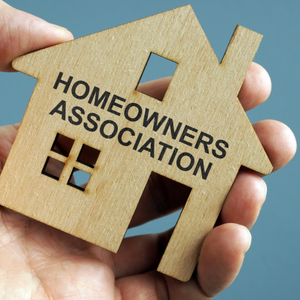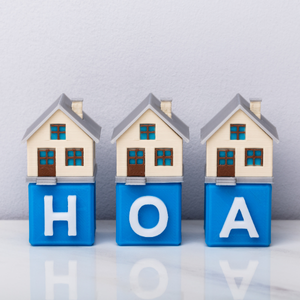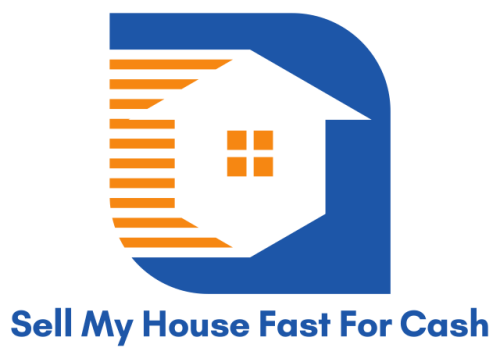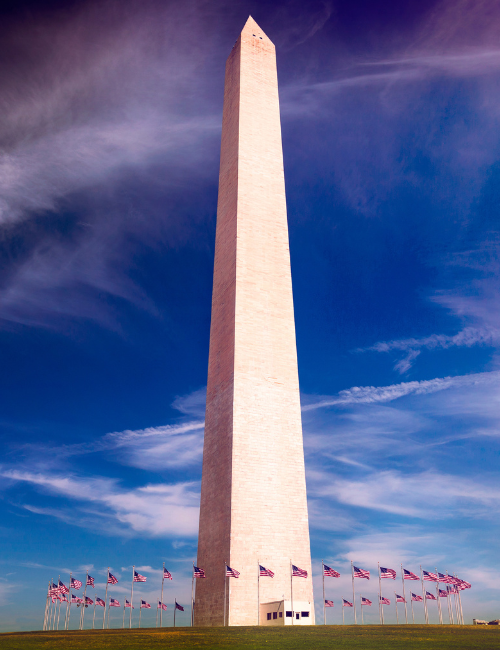
Understanding the Legal Implications of Delinquent HOA Dues in Washington
In Washington, falling behind on HOA dues can have serious legal consequences for homeowners and the wider housing market. Because state law gives associations the power to slap a lien on any property with missed fees, these official clouds over the title can stall or sink future sales.
Owners worry that an unpaid balance could snowball into a full-blown foreclosure if the debt is not cleared quickly. Remarkably, associations may push that extreme step even when the primary mortgage is up to date, underscoring why keeping dues current is vital.
Add-on interest and late penalties usually pile up, making the bill larger and harder to pay, and turning what seemed like a minor slip into a significant strain. Prospective buyers then hesitate, fearful they will inherit hidden dues or face sudden special assessments from a budget-starved board.
For that reason, staying on top of HOA obligations and helping neighbors do the same is key to protecting home values and keeping real estate deals on track in Washington.
How Delinquent HOA Fees Affect Property Values in Washington State
When homeowners in Washington State fall behind on their HOA dues, it hurts property values and puts extra strain on sellers, buyers, and agents alike. Unpaid fees weaken the association’s budget, leaving lawns unmowed, pools dirty, and security patrols cut short.
Common areas that look neglected quickly sap a neighborhood’s charm, turning away tour after tour of interested buyers. Because first impressions matter, reduced curb appeal drags down offers not only on houses owned by delinquents but also on adjacent ones trying to stay above water.
A community plagued by overdue dues warns buyers and their lenders of future special assessments or sharp increases just to keep streetlights on, so many simply pass. Banks notice the trend, label the area higher-risk, and tighten credit, shrinking the pool of eligible buyers and bumping prices even lower.
In a state where competition fuels fast sales, the poison of unpaid HOA dues can spread far and wide, hurting single families, whole blocks, or even town centers.
The Impact of Delinquent Dues on Community Amenities and Services

When homeowners in Washington fall behind on their HOA dues, everyday community services, shared pools, tidy landscaping, and even basic security start to suffer, and the trouble spreads outward, touching real estate and local pride. With cash short, boards struggle to keep up, grass turns brown, lights stay off, and maintenance on playgrounds or clubhouses gets pushed down the list until it almost disappears.
As the shared spaces slip, homes lose their shine, curb appeal fades, and many owners quietly worry that their most significant investment’s value is slipping along with it. Plans for new benches, fresh paint, or even routine resurfacing of the streets can be shelved as the checking account shrinks, leaving residents stuck with what is already there.
The squeeze from unpaid dues doesn’t vanish; it often shows up as higher fees or special assessments for those who do pay, stoking frustration, gossip, and a sense of unfairness that drives neighbors apart. Add that tension to dwindling amenities, and would-be buyers hesitate, fearing they’ll step into a community plagued by shaky finances and spotty management.
Recognizing the chain reaction set off by late fees matters for everyone; clear eyes protect property values and keep Washington neighborhoods welcoming, well-maintained, and genuinely enjoyable places to live.
Strategies for Homeowners to Manage Late HOA Payments
Homeowners in Washington who fall behind on HOA dues have practical steps they can take to avoid late bills and protect their ownership rights and property values. First and foremost, keeping the lines of communication open with the association is key; reaching out early to explain any cash-flow crunch can lead to workable payment plans or a short deferment.
Equally important is a careful review of the rules spelled out in the HOA bylaws, because those pages lay out exactly what penalties or interest kick in when assessments are overdue. With that context in hand, it becomes easier to tweak the monthly budget, moving discretionary spending aside so the dues and other vital housing costs stay current.
For some families, talking to a financial adviser or a nonprofit credit counselor offers a fresh view on income, expenses, and small debts, turning late assessments into planned payments. Tapping into a low-rate refinance or a modest home-equity line can settle the balance in one stroke while locking in better terms going forward.
By acting early and leaning on both internal discipline and outside expertise, homeowners give themselves a fighting chance to tame delinquent dues, ward off harsher action, and keep their property and neighborhood on solid ground.
Financial Planning Tips to Avoid Becoming Delinquent on HOA Dues
More homeowner associations across Washington are getting proactive about chasing late dues so their blocks and the broader housing market don’t feel the squeeze. Straightforward notes guide members through the why of on-time bills, spelling out the ripple effects when payments drag.
Many boards now hold budget meet-ups that arm residents with simple tools to track spending and dodge late charges. For anyone caught by a brief income dip, flexible pay plans offer a clear path back without worrying about liens or court hounding.
Tech helps, too. Secure online portals let owners pay dues with two quick clicks, while autopay keeps accounts on track amid the daily scramble. Routine reviews and small tweaks to rules also ensure policies move with today’s financial headaches instead of collecting dust.
Together, these steps keep associations in the black, shield home values, and, most importantly, help neighbors stay on friendly terms as they all work to keep their community shining. If financial strain becomes too much, you can sell your home for cash in California or nearby states, a quick, stress-free way to move forward.
Proactive Measures by HOA to Prevent Future Payment Issues
More and more homeowners associations in Washington are stepping up early to deal with late dues so their neighborhoods and the housing market don’t feel the pinch. Clear messages explain why on-time payments matter and spell out what happens when bills linger.
Many groups now run budget workshops, allowing residents to track money and sidestep future late fees. For those hit by a short-lived setback, flexible pay plans let them catch up without fear of liens or court action.
Technology also pitches in; secure online portals let owners settle dues with a couple of clicks, and auto-pay options keep accounts current in the busy rush of daily life. Regular checks and tweaks to rules and bylaws mean the policies keep pace with today’s financial headaches.
Together, these moves help associations stay in the black, protect home values, and nurture friendly ties among neighbors who all want their community to shine.
Best Practices for HOAs to Communicate Effectively with Delinquent Members
Clear and respectful talk with homeowners behind on dues is vital for Washington associations to collect payments and keep neighborly trust. A good place to start is setting steady channels- website alerts, newsletters, or emails- so every late notice sounds the same professional tone.
Each case is different, however, so outreach should land in a member’s inbox as a brief handwritten letter, short email, or friendly call that honestly speaks to her job loss or medical bill. Being open about what happens if dues stay unpaid and walking him through any realistic payment plan will usually tempt him to settle the debt.
Frequent reminders about the budget due support, plus simple guides on why prompt payment matters to services and home values, build a culture of cooperation. When boards stay ahead of overdue accounts in this way, they cut down arguments and court-action fears while protecting property prices and the neighborhood’s overall health.
Options for HOA to Recover Unpaid Dues: Debt Collection and Beyond

Homeowners associations in Washington have a toolbox for chasing overdue dues, since missed fees hurt individual owners and the local housing market. The first and most common step is to hire a collection agency that knows the ins and outs of recovering HOA bills.
These firms are seasoned at crafting payment plans and tracking stubborn balances, and they usually have time, personnel, and computer systems that the board simply lacks. Boards might also place a lien on the debtor’s property, so any sale or refinance has to clear the unpaid assessments first.
When those tactics fail, the association can drag the matter into small-claims court and win a judgment that adds legal weight to the claim. Other times, the board sits down with the owner, hears the story, and drafts a repayment schedule that respects genuine hardship yet protects regular payers.
By mixing hard measures with open dialogue, associations try to close revenue gaps and keep shared amenities running without tanking property values or alienating neighbors.
Mediation vs Litigation: Resolving Disputes Over Unpaid HOA Fees
Arguments over unpaid HOA dues in Washington State can ripple through individual households and the local housing market. When fees sit overdue, a community must decide whether to try quick mediation or head straight to court.
Mediation is usually friendlier. It lets homeowners and board members hammer out an agreement behind closed doors, saving money and often keeping neighbors on speaking terms. For many disputes, that private discussion solves the problem long before anybody enters a courtroom.
Litigation, by contrast, hands the matter to judges and clerks and provides clear legal rules. That structure can untangle complicated cases or settle issues stubbornly blocked at the negotiating table. Still, the process stretches over months, racks up attorney bills, and usually leaves everyone slightly angry.
Which route works best depends on how far payments have fallen behind, how open each side is to talking, and the impact of the decision on property values down the street. By exploring both paths, boards can protect their budgets and still nod hello at the mailbox.
The Consequences of Ignoring Notices From Your HOA
In Washington, simply ignoring letters from your Homeowner’s Association (HOA) about unpaid dues can snowball into headaches for you and your neighborhood. Each missed payment brings fresh late fees and growing interest, so the amount owed keeps climbing long before anyone wants it to.
Eventually, the HOA can take tougher steps, like filing a lien or even starting foreclosure, and those actions create sharp drops in your credit score and make future borrowing tough. Such moves don’t just put an individual house at risk- they often drag down nearby prices and squeeze neighbors who hoped to sell at fair rates.
On top of that, unmet dues leave the HOA short on money, so routine lawn care, pool upkeep, and other services slide, making the whole community look less inviting. Addressing dues as soon as the first letter arrives is therefore smart for your wallet and every nearby family.
What Happens If You Don’t Pay Your HOA on Time?
Missing a Homeowners Association (HOA) fee on time in Washington can cause serious problems for you and even ripple through the local housing market. The moment your payment is late, the board usually tacks on a penalty and interest, making an already stressful bill grow bigger fast.
If you continue to ignore the dues, the HOA may escalate by hiring a lawyer or placing a lien on your house. That lien, like unpaid property taxes, has to be cleared before you can refinance or pass the place on to the next buyer, and getting it removed can take time and extra money.
In the worst scenarios, the association could start foreclosure, threatening your ownership and leaving a black mark on your credit. Knowing what can happen if you fall behind helps prevent damage to your score and overall finances.
When many neighbors stop paying, the community suffers; homes become harder to sell, and prices often slide. Keeping your dues up to date, then, protects your property and helps keep the area’s real estate scene stable. If you’re struggling with payments, consider your options. You can sell your home for cash in Washington or nearby states with Sell My House Fast For Cash for a fast, hassle-free solution.
What Happens If Your HOA Sends You to Collections?

When a homeowners association in Washington turns over unpaid dues to collections, the fallout can affect a family’s daily life and harm neighborhood property values. At first, the board sends a letter explaining what is owed, adding any late fees or penalties that have accumulated.
If the bill is still ignored, the association hands the account to a collection firm that tries to recover every cent. The outreach appears on credit reports, often dragging down scores and making future loans or even simple car leases harder and costlier to land.
Late payments can also trigger tougher steps, like placing a lien on the house that blocks sale or refinancing until it is cleared. Keep ignoring the notices; in extreme cases, the board may file for foreclosure and seize the very home you wanted to protect.
Knowing the rules and keeping communication open with your HOA keeps ownership steady and helps shield your most significant investment in Washington.
Does a Late HOA Payment Affect Credit Score?
When homeowners in Washington miss a deadline for their homeowners association fees, they naturally worry about what the slip might do to their credit scores. Knowing how unpaid dues can ripple through a homeowner’s finances is, therefore, important.
Generally speaking, late payments won’t ding a credit score right away because most associations don’t send payment records to the bureaus. Yet if the bill grows large and the board turns to lawyers or hands the debt to a collection firm, that outside agency will report it, and suddenly, negative flags appear.
Those flags can drag down credit scores and make getting a loan harder or, at the least, push interest rates higher. If the account is left unpaid long enough, an HOA can place a lien on the house, complicating ownership and any future sale.
For all these reasons, staying up to date with dues protects your credit and ensures the smooth running of your home.
If overdue HOA fees are piling up, selling your home quickly may be your best option. Sell My House Fast For Cash can help you avoid foreclosure, collections, or legal complications by offering a fast, fair cash offer with no repairs or delays needed. We handle all the details to make the process seamless. Contact us at (866) 824-3222 today for a no-obligation offer and take control of your situation.
| HOME OWNERS ASSOCIATION | HOMEOWNER’S ASSOCIATION | FORECLOSING | FORECLOSURE SALE | JUDICIAL FORECLOSURE | CONDOS |
| CONDOMINIUM | CONDOMINIUM ASSOCIATIONS | MORTGAGEE | MORTGAGES | INSURANCE | INSURANCE COMPANY |
| INSURANCE AGENCY | HOUSING FINANCE | GRANTOR | CONVEYANCE | POLICY | ATTORNEYS |
| FLAG | STATUTES | NON-COMPLIANCE | NON-COMPLIANT | LIABILITY | RATE OF INTEREST |
| ATTORNEYS’ FEES | LANDLORD | TELEPHONE | RIGHTS OF PROPERTY | MONEY | TAX |
| TAXATION | INSURANCE POLICIES | INSURANCE POLICY | FINANCIAL STATEMENTS | EXPENDITURES | DISCRIMINATION |
| DEBT COLLECTORS | COMPLAINTS | COMPANY | UNITED STATES | AMERICAN | TRUSTEE |
| TRUST | STATUTE OF LIMITATIONS | REVISED CODE OF WASHINGTON | REAL PROPERTY | NONPROFIT ORGANIZATION | NONPROFIT |
| LEGAL ASSISTANCE | LEGAL AID | LEDGER | LEASE | LESSEE | SUIT |
| HOTLINE | UNITED STATES FLAG | AMERICAN FLAG | US NATIONAL FLAG | US NATIONAL FLAG | DEEDS |
| CC&RS | COVENANTS, CONDITIONS, AND RESTRICTIONS | COOPERATIVES | BOARD OF DIRECTORS | ASSETS | WASHINGTON STATE DEPARTMENT OF FINANCIAL INSTITUTIONS |
| TOOLS | NONPROFIT CORPORATION | NATIONAL FLAG | NATIONAL FLAG | DEFAULT | DAMAGES |
| CORPORATION | CONSUMER PROTECTION | DEPARTMENT OF COMMERCE | TERMS OF USE | PRIVACY | MINUTES |
| LICENSING | LIABILITY INSURANCE | SHERIFF’S SALE | STATE LAWS AND | STATUTE OF LIMITATIONS | HOA IN WASHINGTON |
| A HOMEOWNERS ASSOCIATION | THE WASHINGTON STATE | COVENANTS CONDITIONS AND | HOMEOWNERS ASSOCIATION HOA | THE GOVERNING DOCUMENTS OF | THE BOARD OF DIRECTORS |
| AN HOA IN WASHINGTON | COVENANTS CONDITIONS AND RESTRICTIONS |

